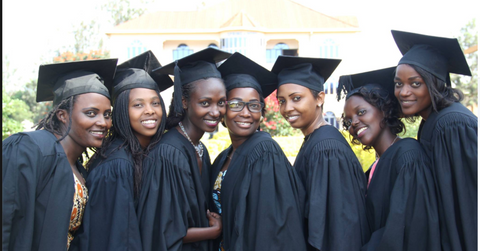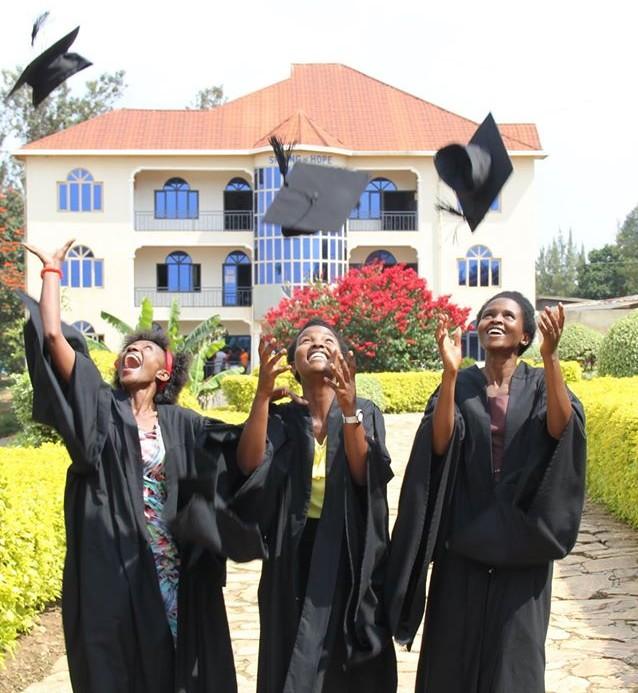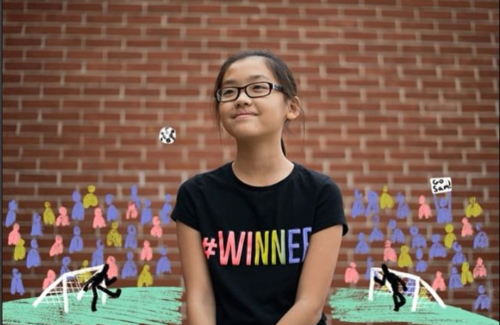How Rwanda’s 1st Female Debate Team Crushed Gender Bias And Won

After a humiliating defeat, Rwanda’s first all-female debate team came back and won the National Inter-University tournament to the surprise of the country. Debate is a male-dominated sport, including in the United States where women still only represent 30% to 40% of debaters at intercollegiate tournaments. The women of Rwanda’s first debate team: Phylis Kabano, Sonia Rugwiro and Mireille Umulike learned to overcome sexism and harassment by ensuring that they could “feel powerful enough to take on anybody.”
Female debaters have been accused for acting too bitchy or too meek, and even booed off the stage. In a college-debate in Glasgow in 2013, two female speakers were reduced to tears when a group of boys started harassing them in the audience, making fun of their chest-size and overall appearance. Before they took home the trophy, Phylis, Sonia and Mireille faced their own discrimination and challenges.
In high school, Mireille recalls that she was barred from running for president of the debate club because of her gender. When she asked why a girl couldn’t be the head of the club, they would tell her, “That’s for Americans. You’re trying to be American.” Being “American” is the same as being too selfish, too aggressive and too liberated in Rwanda.
Even in a country that is ranked as number 6th in the world for gender equality, according to the World Economic Forum, sexism is still evident on an educational and personal level in Rwanda. More than half of their parliament is occupied by women, but many of those same women go home to play the docile wife. Justine Uvaza describes the limits of Rwanda’s gender equality by telling the stories of female politicians’ home-life.
Uvaza says, “one told me how her husband expected her to make sure that his shoes were polished, the water was put in the bathroom for him, his clothes were ironed… And he wanted it done by his wife, the parliamentarian.”
In the construction of Rwandan society following its genocide in the mid 1990s, political leaders drafted new legislation that called for more participation from women in the workforce. However, many women were not prepared for this change and not comfortable stepping out of their roles as subservient members of society. This traditional-persona of a “good Rwandan women” conflicts with the more assertive roles and jobs women are now taking, including within the field of debate.
Debate requires one to be confident and speak assertively, which the first Rwandan all-women debate team struggled with. The first time they competed in a national tournament, they were crushed by a male-dominated team from one of the country’s best schools. As the only woman on the opposing KIST team pointed out: “They were ‘acting like women’ … shy, quiet, and the voice does not go too high…[Rwandan women] have to be humble, speak slowly and all that. And that does not match with debate, seriously!”
In order to build their confidence and make their performances more powerful, Phylis, Sonia and Mireille decided to follow the advice of a TED Talk delivered by Social Psychologist, Amy Cuddy. The talk, “Your body language shapes who you are,” Cuddy argues that you can change the way you felt by striking a ‘power pose’. The women on the first all-female debate team used this tactic, calling it the “power game.” Each debater would strike a confident pose and declare how powerful she was in front of everyone else. They repeated phrases like “I’m a debater and I’m a winner.”
And it worked! The women returned to another national debate, more confident than before. All the contestants pointed and laughed. And even the emcee, when introducing their team, referred to them not as debaters but as the “Ladies of Akilah.” The coach turned to team right before they stepped onto stage and said: “Girls, the task that we have today is to show these people that we didn’t come to just grace the occasion, we came to take the trophy with us.”
Phylis, Sonia and Mireille did not let the emcee and the other contestants intimidate them and went on to win the whole tournament, convincing the judges and the audience that they were the real deal. They were not there as spectators, or women, but as debaters- worthy of that gold trophy. They faked-it until they made-it.







